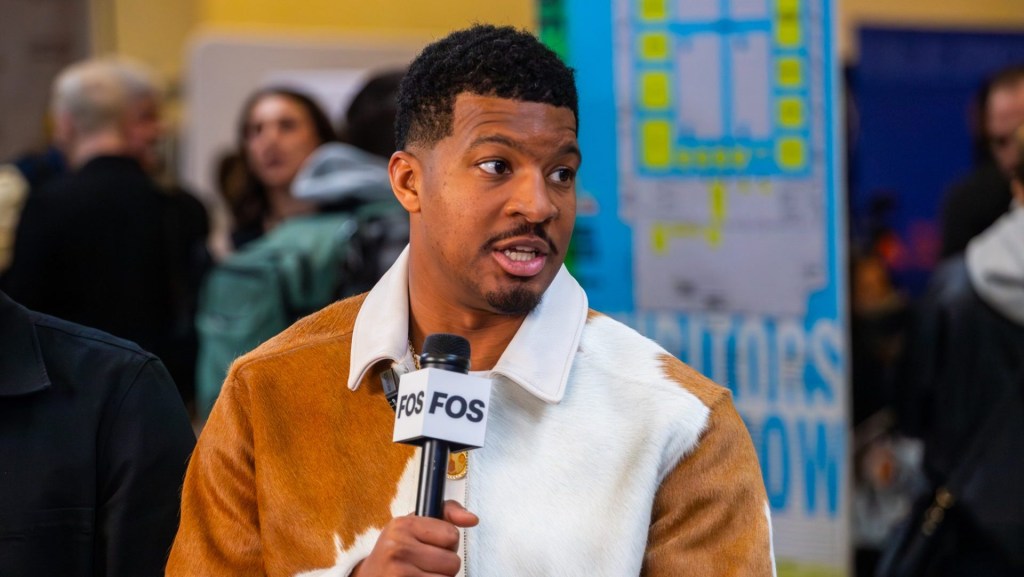By: Adam White, @FOSAdam

Front Office Sports is proud to have sat down with Tim Ziakas, CEO of Parkview SportsGroup. Tim is an alumnus of Wheaton College (MA) where he received his Bachelor’s degree in Economics. Along with excelling in the classroom, Tim excelled on the field where he was a four year starter for Wheaton’s baseball team and helped lead them to four straight NEWMAC Conference Regular Season Championships. After a career as a financial advisor in New York City, and ultimately owning a sports facility for over seven years, Tim has parlayed those experiences into helping other entrepreneurs achieve their goals. Tim was gracious enough to offer up his time and insight on what it means to take risks, how important networking is and why the simple phrase “Of course you can” has kept him motivated throughout his professional career.
How did you get your start in sports?
Like a lot of us, Tim has been interested and has been playing sports since a young age, but his first true job in sports came in high school where he worked for a local baseball training facility. Tim said, “My job was to open, close and clean up. Basically, I was the mule. It was then when I started to think about having a career in sports.”
What is Parkview Sports Group and what is a normal day like for you?
For Tim, Parkview Sports is the brainchild of his previous positions. During his time as an owner of a baseball facility and through networking, he “found out that there was a need for people to help others in the sports facility business.” He went on to elaborate saying,
“Parkview Sports is designed to provide the people who have a passion for sports and want to own their own sports facility have some help and guidance running their operation. It is all about providing a resource where people can get help and advice.” His day while similar to many other CEO’s is different in the fact that he spends “a large chunk of time reading on leadership and how to run successful organizations. If I’m going to help others run their businesses, I better know how successful organizations run and reading helps me better understand all the intricacies.”
What is your favorite part about working in sports?
Tim’s true spirit of giving back and having a true sense of empathy for others was evident as he said, “For me, there are two. I have had the ability to directly impact the lives of kids when I owned the baseball facility. It is great to be able to show the kids the joys and rewards of playing sports.” “Secondly, I love being able to work with adults who are in business for themselves and be able to have an impact on them and their business in a positive way financially. For me, that’s extremely rewarding.” Not only are sports a big part of Tim’s life, but he makes it his goal to make sure everyone can enjoy and benefit from sports in one way or another, which is a true testament to his character
How important is networking in your eyes?
When broached with the topic Tim had a much more holistic view saying, “In general, to be a well-rounded individual, you need to surround yourself with all different kinds of people and I’m a firm believer in that you need to expand your circle of influence.”
He would go on to expound on that by saying, “You don’t have to be around just people from sports. Networking is a learning experience and you can learn as much from an expert in literature as you could from an expert in marketing. Networking is finding people who you can help and introducing them to others that they wouldn’t have a chance to meet on their own and eventually that comes back around to you.”
Finally he gave a great summation of the whole process saying, “If you go into networking events trying to sell something, whether your product or yourself, you’ll come off as a used car salesman, but if you go in with the mindset of wanting to learn and hear about what other people do, you will see the difference.”
What traits would the ideal candidate have to succeed in today’s sports industry?
Tim pointed out that for him trust was the most important thing that he looked for when hiring others. “When I am working to bring someone on board, I have to be able to trust him or her. They have to be honest and they have to be trustworthy, they need to have empathy and they need to have compassion.” He also noted that trust and values and morals go hand in hand and how important both are. “I can teach someone to sell, I can teach someone accounting but I can’t teach values and morals. You can’t teach someone to be fair and reasonable or have the ability to see things from another’s point of view and that’s why those traits are so important to me.”
If you were looking at resumes, what would be one thing that would make a candidate stand out from the rest of the group?
Instead of responding with the atypical “lots of internships and experience in the industry” answer, Tim took a different view. “I would want to see that they have worked a really crappy job. It doesn’t matter what or where, I just want to see that they have done something on the lowest rung of the ladder. I want to know that they know what it is like being the bottom person.”
For Tim a person who has been on the bottom is especially critical when it comes to management positions. “You have to know what people are going through. It’s hard to manage people who have those jobs, if you haven’t been in that position.”
He drew on his own experiences to drive home his point saying, “I just look back at my experiences and I know that I wouldn’t be the person I am today without those experiences. I worked in a bagel store and woke up at 4:00 a.m. to open, and let me tell you, that’s pretty crappy but I knew what it was like to be on the bottom rung and that helped immensely.”
Parting wisdom and tips?
Many of us are too embarrassed to say in public how much we have taken away from our parents, but Tim was quick to point out that he wouldn’t be where he is today without his Dad’s advice. “If there is one thing that I go back to, it is the advice my father gave me and the simple saying “of course you can.” I would go to him and ask for advice about maybe changing careers or taking a risk his answer was always “of course you can.” “If you can put the time into it, you can do it.”
Tim also noted that you can’t get anything done without telling people how you feel. “Don’t be afraid to tell people what you feel and what you believe. When you’re working with people, let them know your opinions. In order for you to be really successful, people have to believe in you. They can’t believe in you if they don’t see your true feelings, who you really are and what you believe in. Whatever you are commanding from the people you work with, you better act like it. If you want respect, then you need to earn it.”





![[Subscription Customers Only] Jun 15, 2025; Seattle, Washington, USA; Botafogo owner John Textor inside the stadium before the match during a group stage match of the 2025 FIFA Club World Cup at Lumen Field.](https://frontofficesports.com/wp-content/uploads/2026/02/USATSI_26465842_168416386_lowres-scaled.jpg?quality=100&w=1024)
![[Subscription Customers Only] Jul 13, 2025; East Rutherford, New Jersey, USA; Chelsea FC midfielder Cole Palmer (10) celebrates winning the final of the 2025 FIFA Club World Cup at MetLife Stadium](https://frontofficesports.com/wp-content/uploads/2026/02/USATSI_26636703-scaled-e1770932227605.jpg?quality=100&w=1024)










